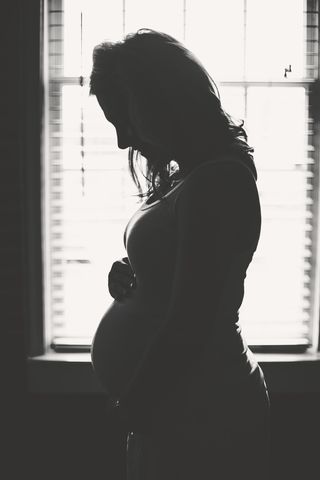Pregnancy
Pregnancy Blues
Feeling sad during pregnancy may require some attention.
Posted May 30, 2017

By Vanessa Babineau
Most of us have heard about baby blues and postpartum depression, but to be clear: these are not the topic of this discussion. This is about pregnancy blues, a common yet rarely talked about experience that affects up to 20 percent of moms during pregnancy, moms whose questions and concerns are too often going unanswered. If you or someone you know has been suffering in silence or without support, you are not alone and there are answers.
“The timing was finally right when Molly became pregnant. She and her partner had graduated from college, found jobs, and moved into a home to start a family. Molly, who had a history of depression, sometimes worried how this might affect her child or children in the future. Since college, Molly was especially prone to depression during periods of high stress related to school and her job. When she became pregnant, the stress came back, and so did the depression.”
Pregnancy blues are often misunderstood
Society tells us that pregnancy is supposed to be a happy time, so it’s not surprising that women who find themselves feeling depressed during pregnancy may not feel comfortable disclosing these feelings or seeking support. And, unfortunately, screening for mental health problems during pregnancy is not (yet!) common or standard practice among physicians, including OBGYNs. Cases regularly go undiagnosed and leave pregnant moms with no answers or support through this difficult time.
Even worse: family, friends and physicians may attribute the symptoms of depression to hormonal changes, leaving women feeling profoundly unheard, frustrated, and confused. The well being of pregnant women requires more than attention to their nutrition, sleep, and hormones—their emotions are also critical. In other words: it’s not just the physical stuff!
Depression during pregnancy is not uncommon
Given that depression affects one in four people at some point during their lifetime, it shouldn’t come as a surprise that women can also be affected during pregnancy, especially women who have a history of depression prior to becoming pregnant. In fact, one of the greatest risk factors for depression during pregnancy is having been depressed at some point in your life prior to being pregnant. Other significant risk factors include relationship problems, stressful life events, lack of social and economic resources, pregnancy complications, and unplanned pregnancy.
Further, depression during pregnancy that goes untreated can be dangerous for both mom and baby. For example, depression during pregnancy has been associated with preterm labor, moms lacking the strength and motivation to care for themselves and their baby, babies being more difficult to soothe during infancy, as well as mental and physical health problems for both mom and child after pregnancy (ABC News; Washington Post; TIME; New York Times). Not to mention, one of the greatest predictors of postpartum depression happens to be—you guessed it—depression during pregnancy.
There IS help!
First, express your concerns. Speak to your doctor, your OBGYN, your therapist, your healthcare provider—get the support and answers because they are out there. There are also perinatal clinics, typically located in hospital settings, who specialize in various pregnancy concerns, including mental health issues.
Treatment and interventions that have been supported for women’s mental health during and after pregnancy include psychotherapy, prenatal yoga, mother-child dyad therapy to increase bonding and being attuned, and, in some cases, antidepressants. Believe it or not, especially in instances of severe depression, or for women already on antidepressants prior to becoming pregnant, some scientists are beginning to demonstrate that fetal exposure to antidepressants shows less risk than exposure to unmedicated depression.
Assistance and answers are out there, and are best explored in collaboration with a healthcare provider.
Vanessa Babineau is a Ph.D. Candidate in Child Psychology at McGill University. Her research is focused on women’s mental health during pregnancy and the development of infant and early childhood mental health. Her clinical interests include providing prevention and intervention services for children and their families. She is currently a Psychology Intern at the William Alanson White Institute. Her future plans include pursuing postdoctoral research focused on women during pregnancy and child development, as well as providing mental health services to children and families.


